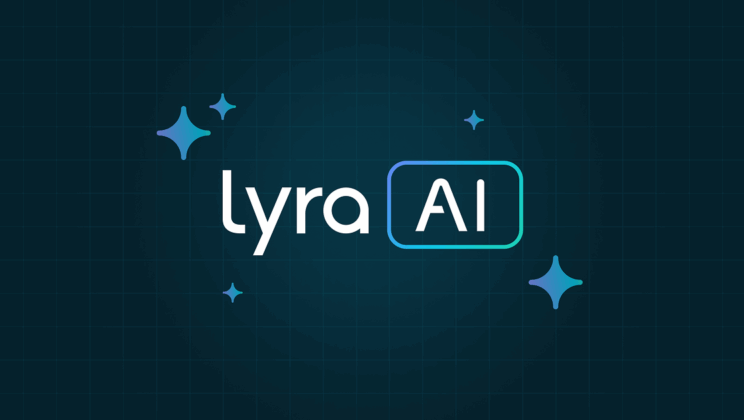Work has to change. Your employees’ mental health depends on it.
March 19, 2024

Let’s talk about a major contributor to our mental health—work. Most of us will end up clocking in 90,000 hours at work over the course of our lives. So it’s understandable that whether it brings you great satisfaction or great stress, work inevitably affects your well-being. Yet employers tend to overlook life at work when considering how to support workforce mental health, despite being squarely within their control.
Unaddressed workplace stressors are hurting employees
Mental health challenges are hitting employees hard: Nearly 90% of employees are struggling with conditions ranging from chronic stress to depression and anxiety, according to our latest State of Workforce Mental Health Report. But why? In our report, we surveyed 3,400+ managers and individual contributors to understand what’s behind this rampant mental distress. We learned that work-related stress is significantly impacting today's workforce, ranking as a top contributor to mental health challenges, second only to financial stress. And one of the most painful byproducts of work stress is also one of the most common: burnout. A study by Aflac found that 59% of workers experienced burnout last year, up 10 points in just two years.
As a practicing psychologist, I’ve seen burnout’s impact on my clients—including sheer exhaustion from work overload, depleted motivation due to a chronic lack of recognition, and shattered confidence stemming from micromanagement. I’ve worked with people whose work has driven them to lose sleep, neglect their relationships, and become so consumed by stress that they become a version of themselves their loved ones don’t recognize.
At Lyra Health, I also treat burnout, but from a different vantage point. I help employers build healthier workplaces by rethinking their policies, management practices, and environments in ways that protect mental well-being and promote greater job effectiveness. I’m able to help improve mental well-being at scale and promote ways of working that prevent the kinds of work-related distress that often lead people to need care in the first place.
When work stress becomes hazardous
A work experience that promotes well-being and performance starts with identifying hazards that pose a threat to people and businesses. When it comes to job hazards, people think of slips, falls, and strains that cause physical injury, but may not consider how work can lead to psychological harm. Psychosocial hazards are workplace factors that create conditions for the type of severe mental distress that self-care or wellness perks just can’t solve. Hazards range from problematic ways of working (such as low job control), to harmful social dynamics like bullying and harassment, to dangerous environmental factors (for example, excessive noise).
There’s no need to eliminate all work-related stress. Instead, the goal should be to manage psychosocial hazards so work stress is at a reasonable level, enabling better performance without inflicting pain and suffering.
The costs of a hazardous work experience
If employers don’t chip away at work-generated sources of “bad” stress, employee mental health plummets and a business’ bottom line takes the hit. Lyra’s own data tell this story. Employees in our study openly report being less focused, engaged, and productive at work due to mental health challenges. For 1 in 5 U.S. workers, it’s so bad they’re considering a job switch, potentially leading to higher turnover. Additional research shows that employees grappling with burnout have a 57% increased risk of long-term absences. And these adverse impacts don’t capture the reputational costs to employers’ brands and the impact on talent recruitment.
The next big imperative: fixing the work, not the worker
If the human and financial toll of hazardous workplace conditions aren’t compelling enough, leading health authorities, including the U.S. Surgeon General and the World Health Organization are now calling for employers to examine work’s impact on employee mental health and intervene. And it’s clear employers can no longer rely solely on tactics aimed at individual workers, such as stress management techniques or resilience training. Instead, health experts are asking employers to prevent work-related distress by improving work itself, rather than teaching people to simply cope better with a hazardous workplace.
Enter psychosocial risk management, a holistic process that includes evaluating employees’ exposure to potentially mentally harmful aspects of work and controlling risks by improving management practices, company policies, operational processes, and the work environment.
Designing work that works for everyone
When employers ask for Lyra’s help with burnout, turnover, or diminished productivity, our first step is to diagnose the causes. Using the psychosocial risk management approach, we gather workforce data to pinpoint which teams are struggling most. We then follow up with the affected employees to uncover the work factors contributing to their mental health challenges and how those factors arise.
For example, incidents of bullying within a department may point to dysfunctional interpersonal dynamics, but the key question is why those dynamics exist. We’d consult with managers, team members, and HR to understand everything from recruitment practices and team norms to operational processes that may put teams under undue strain. Using our risk assessment tools, we can uncover the full range of psychosocial risks that create the conditions for toxic behavior. This may even reveal contributors that an employer might not suspect, like poor role clarity. Combined, these data paint a more complete picture of the problem and could point us toward solutions that improve how job candidates are evaluated, refine how anti-bullying policies are developed and enforced, and clarify reporting structures and role responsibilities to reduce team stress.
The result? A workplace that tackles work-related distress at the source and prevents it from spreading, encourages employee engagement, and supports mental well-being at a population level. In short, it’s a win-win for the employer and the workforce.
Fostering a mentally healthy workplace
Creating and sustaining a high-performing, mentally healthy culture demands a smart strategy that engages everyone, from company leaders to individual contributors. Lyra’s latest product innovations offer employers the tools they need to get started.
Click through the below sections to learn more about how Lyra can help.
Be well-informed
You can’t fix what you don’t understand. Collect actionable, workforce-wide data to understand which work-related hazards are posing risks, and on which teams. Armed with the right data, you can take effective action at all levels, improving:
- Management practices
- Corporate policies
- Operational processes
- Interpersonal dynamics
- Work environment

Lyra Organizational Health Evaluation
Actionable workforce-wide data and expert guidance to help benefits leaders understand and address psychosocial hazards affecting employees.
Be well-connected
Creating a healthy work environment is no small task. The good news is, if your organization is facing challenges, your HR and benefits peers have likely been there too and have solutions. A community of peers offers an invaluable space to build relationships, exchange ideas, and learn from one another.

Lyra Connect Groups
A network of HR and benefits leaders to exchange expertise with on the path to creating a healthy work environment where all employees can thrive.
Be well-resourced
In the healthiest workplaces, a shared mental health vocabulary is key. Access to engaging, clinically backed educational content is vital to help managers learn how to lead with empathy, curb burnout on their teams, and foster a healthy work environment. World-class resources include professionally produced on-demand videos, live events for discussion, and easily digestible articles and guides.

Work hub on the Lyra care platform
Educational content and programming related to workplace well-being to help employees build knowledge, develop skills, and break down stigma.
Take your workforce to the next level
Author
Joe Grasso, PhD
VP of Workforce Transformation
Dr. Grasso is the VP of workforce transformation at Lyra Health and a clinical psychologist by training. At Lyra, he consults with employers on programs, policies, and communication strategy to support mental health in the workplace, and leads the development and delivery of Lyra's educational content on psychological wellness and behavior change. Prior to joining Lyra, Dr. Grasso managed the implementation of a national training program for more than 1,500 mental health providers at the U.S. Department of Veterans Affairs, where he also led quality improvement initiatives and conducted health services research. His peer-reviewed research spans topics including integrated health care, psychotherapy outcomes, and the intersection of social identities and mental health.
Explore additional blogs

Mental health at work
Mental Health Leader Spotlight: Carey Shore, Wellness Program Manager, Heidelberg Materials

Mental health at work
Mental Health Leader Spotlight: Amelia Subryan, Senior Manager, Health and Wellbeing at lululemon

Lyra news